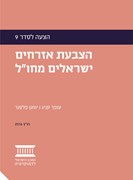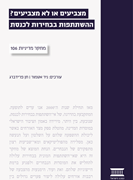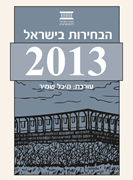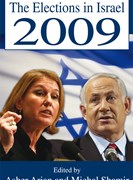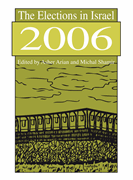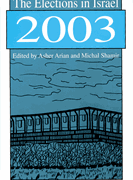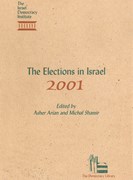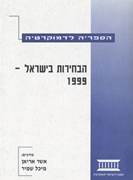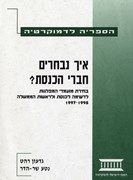

Publications Regarding Elections in Israel
Articles

The Case for Common Sense Knesset Electoral Reform
Written By: Dr. Assaf Shapira
In a semi-open ballot system, voters would see electoral lists and be able to select "preferred candidates" when they vote. This commons sense reform would strengthen democracy, allowing for a fuller expression of voter preferences and an increased connection between voters and their elected officials.

Analysis of Voting Trends and Intentions in Israel: Review of 2024
Written By: Dr. Lior Yohanani
An analysis of the potential voting patterns for future elections, voter transitions between parties, and an exploration of the potential electoral power of the Democrats party in upcoming elections.

No Voice: The Lack of Voting Opportunities in Israeli Democracy
Written By: Dr. Assaf Shapira, Prof. Ofer Kenig, Dr. Amir Fuchs, Asaf Heiman
In recent years, it has repeatedly been claimed that “Israel has too many elections.” On the one hand, this is true, Israel has the highest frequency of parliamentary elections compared to all developed democracies. On the other, Israelis have fewer voting opportunities.
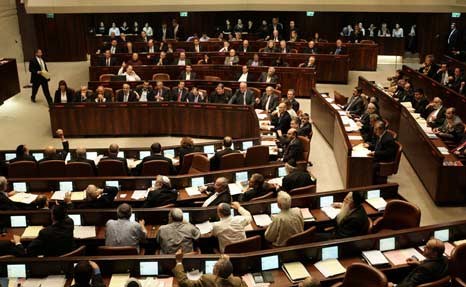
The Many Ways to Dissolve the Knesset 2022
Written By: Dr. Dana Blander
The unlikely coalition that survived thanks to the one vote has lost the parliamentary majority. Does this mean that the Knesset will disperse and new elections will be held? Dr. Dana Blander explains the different ways in which the Knesset can be dissolved and discusses the relationship between these mechanisms and government stability in a parliamentary system.
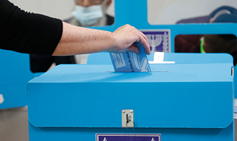
How Often are Elections Held?
Written By: Prof. Ofer Kenig
How often does Israel hold elections? On average every 2.3 years!
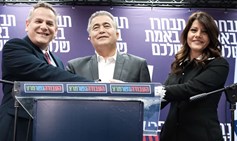
All About Splits
Written By: Dr. Assaf Shapira
How can MKs 'cross the floor' and what sanctions might they face? An explainer by Dr. Assaf Shapira
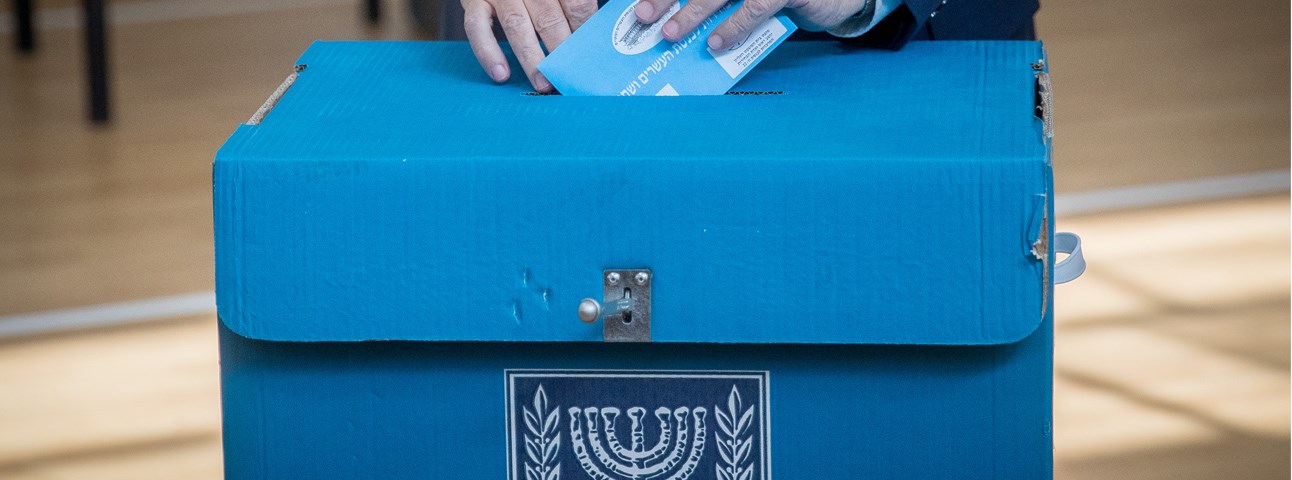
5 days to the Election: Jewish Israelis are Paying Less Attention
Written By: Prof. Tamar Hermann, Dr. Or Anabi
5 days to the Elections: Jewish Israelis are Paying Less Attention. A Majority of Arab Israelis are Following with the Same or Increased Interest. 30% of the Public Predicts a Fourth Election.
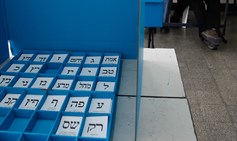
A New Political Card
Written By: Dr. Arik Rudnitzky
Has the "Deal of the Century" injected energy into Israel's third election and perhaps provided an incentive for Arab Israelis to turn out in higher numbers than September? Arik Rudnitzky uses the village of Bartaa as a possible case study.

Getting Stay-at-Home Potential Voters to the Polls for Israeli Elections
Written By: Dr. Assaf Shapira, Dr. Ofer Bernstein
Rather than “packaging” voting as a political, civic and moral obligation, we should try instead to get these potential voters to think about the personal benefits to be gained by going to the polls.

Stop the Use by All Parties of Election-Management Software
The Israel Democracy Institute has submitted a professional opinion to the chair of the Central Elections Committee, Justice Neal Hendel, asking the Committee to prohibit the use of election-management software until appropriate regulations for its use are in place.
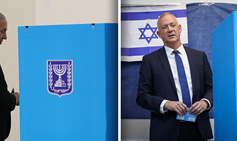
Israelis Believe Netanyahu's Investigations Will have the Greatest Impact on the Vote
Written By: Prof. Tamar Hermann, Dr. Or Anabi
January's Israeli Voice Index found 32% of Israelis believe Netanyahu's investigations will be the issue with the greatest impact on voters in the upcoming Knesset elections.
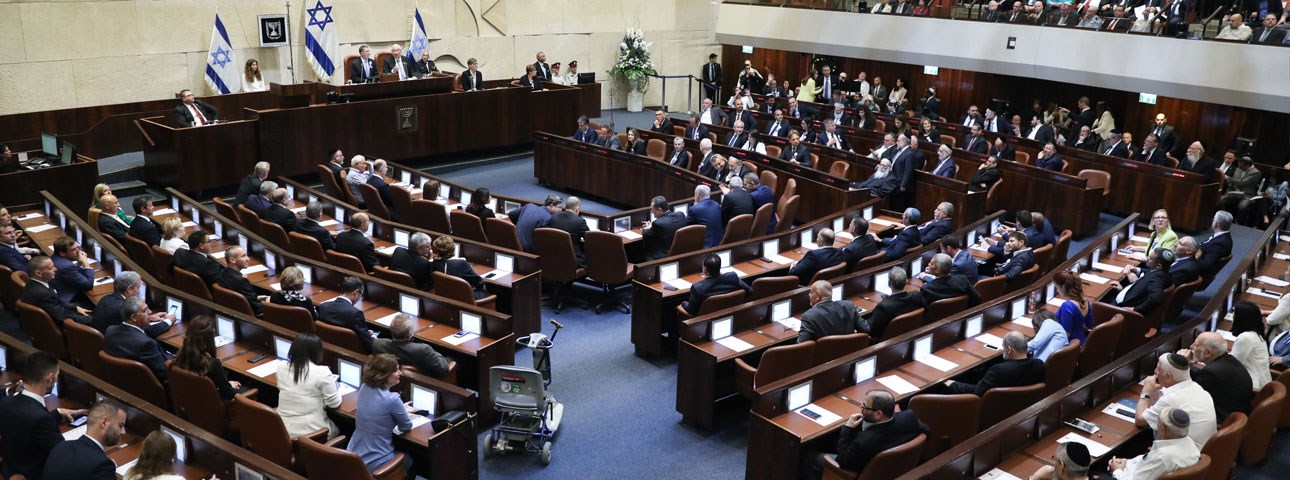
The State of the Highly Personalized Israeli Democracy
Written By: Prof. Gideon Rahat
At this writing, Israel seems to be headed towards its third elections within a year. Israel has been governed for almost a year by a caretaker government, and no one can be sure that the next elections will resolve the stalemate. While this state of affairs may fulfill the dreams of libertarians or anarchists, for most others – it looks more like a nightmare.

Wanted: Fiscally Responsible Political Parties
Written By: Dr. Assaf Shapira
Considering Israel is facing the third national elections in less than a year, isn't it reasonable to expect the political parties, whose campaigns are publicly funded, to act in a fiscally responsible manner?

We Need to Talk about Cameras Right Now
Written By: Dr. Tehilla Shwartz Altshuler
They are everywhere, argued the PM after pushing to install them in polling stations. He's right, and that's exactly the problem
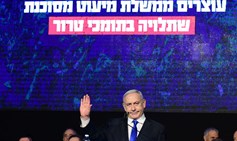
Some are Guilty, but All Are Responsible
Written By: Dr. Nasreen Haddad Haj-Yahya
When the PM smeared Arab Knesset members, those 'allies' who urged us to go and vote had a responsibility to protest. They didn't.
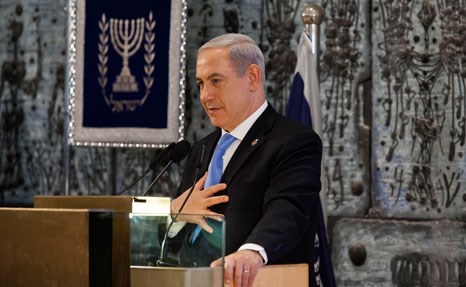
Netanyahu's Future
Written By: Dr. William Cubbison
Benjamin Netanyahu's legal problems are at the center of the current political quagmire. So what do Israelis think about the legal situation and what are the possible resolutions?

Benjamin Netanyahu Fails to Form a Government – What Happens Next?
Written By: Yohanan Plesner
While we cannot know for sure if Benny Gantz will succeed where Benjamin Netanyahu has failed, we can state with certainty that our political system of the past year has been characterized by deadlock, and this is not expected to end in the near future.
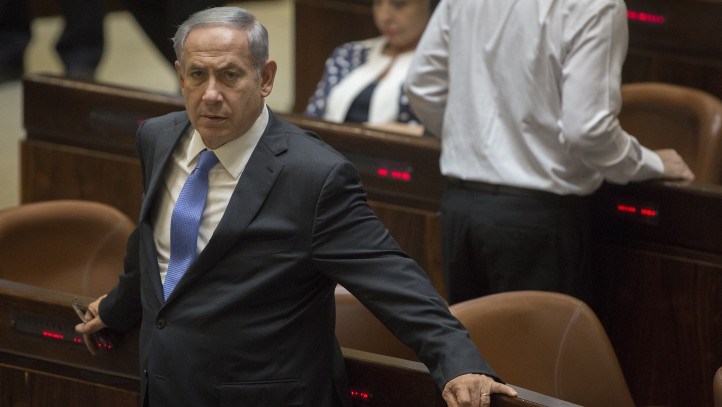
Majority of Israelis Think Netanyahu Should Resign
After Netanyahu returns mandate to the President: Most Israelis support a system based on 2 large parties and a Netanyahu-Gantz rotation for the position of prime minister. 53.5% of Israelis think Netanyahu should resign immediately, while almost half (47%) of right-wing voters believe that Netanyahu should resign if indicted.
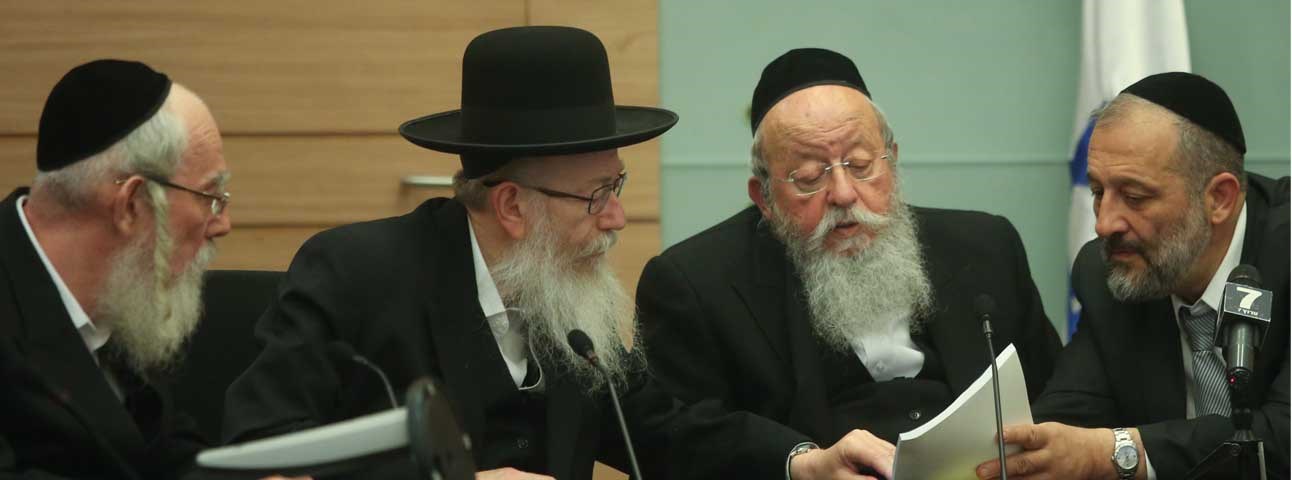
A Pyrrhic Victory
Written By: Dr. Gilad Malach
The results speak for themselves. Shas, headed by Arye Deri, registered a resounding success with traditional voters. But is this a long term victory?
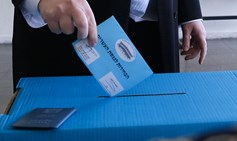
Did the September Election Solve Anything?
Written By: Dr. William Cubbison
The failure to form a government in April and the subsequent second election surprised Israelis. Now, they might need to go to the polls for a third election in early 2020. What do Israelis think about this unprecedented political reality?

A Majority of Israelis Prefer a Unity Government
Written By: Prof. Tamar Hermann, Dr. Or Anabi
September 2019 Israeli Voice Index found that a majority of Israelis prefer a unity government. Additionally the majority of Israelis do not think the State should offer Benjamin Netanyahu a plea bargain or that he would agree to one.

In Praise of Normalcy
Written By: Prof. Yedidia Z. Stern
Despite all the fears, voter turnout was quite respectable (the third-highest rate in the seven elections this century).
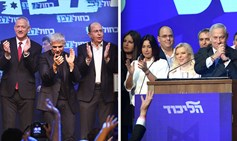
September 2019 Elections - Initial Analysis
Written By: Prof. Ofer Kenig
After an unprecedented second round of elections - the final outcome is still unclear. We’re now entering the next stage of the political lifecycle: coalition negotiations - Dr. Kenig explains what’s next
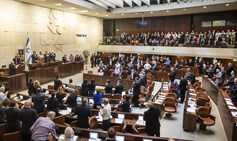
Democracy: Rule of the People?
Written By: Prof. Yuval Shany
The recent wave of populism forces us to sharpen our understanding of the literal meaning of 'democracy' and 'the rule of the people' as well as the accepted definition of liberal democracy
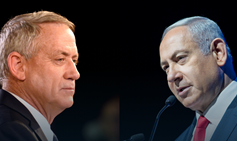
Post-Election Scenarios and the Case for Unity
Written By: Yohanan Plesner
Of the three realistic options, a unity government seems optimal. The other possibilities - a third round of voting or a narrow, right-wing government - carry exorbitant price tags.
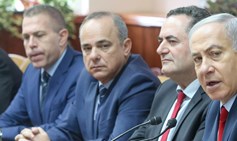
Camera Bill Legislation: Misuse of Political Power of a Transitional Government
An unprecedented decision that adversely affects the status of the Attorney General and constituted a misuse of political power by a transitional government.
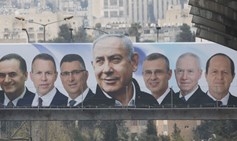
The Positions of the Israeli Right-Wing
Written By: Prof. Tamar Hermann, Dr. Or Anabi
This special survey examines attitudes of right wing voters on a number of issues related to September's election including the possibility of a unity government and recent proposals that would limit judicial review and oversight of Knesset and government decisions.

What will the new Knesset look like?
Written By: Prof. Ofer Kenig
All in all, the human landscape of the Knesset continues a trend of an improved representation, which better reflects the heterogenous Israeli society. Still, several groups are still under-represented, mainly women, non-Jews, young adults and “Russians”.

Every Cloud has a Silver Lining?
Written By: Dr. Arik Rudnitzky
Arab parties can surge if they shake off the old politics - a significant number of Arabs who stayed home in April will vote if they are persuaded their leaders have integrity
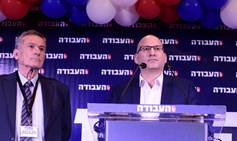
Give Credit to the Most Democratic Party in Israel
Written By: Prof. Gideon Rahat, Prof. Ofer Kenig
Long ridiculed, Labor is one of the few parties that meet stringent standards on campaign finance and transparency
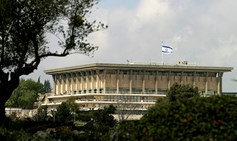
Opinion: Repealing the Law to Dissolve the Knesset
Written By: Prof. Yuval Shany, Dr. Amir Fuchs, Dr. Guy Lurie, Prof. Ofer Kenig
An opinion submitted today (June 26th) to MKs, the Attorney General, and the Knesset Legal Advisor on behalf of the Israel Democracy Institute, opposes the proposal to repeal the law to dissolve the Knesset and seeks to take the proposal off the agenda.
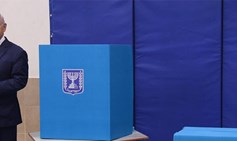
How to End Israel’s Political Impasse
Written By: Yohanan Plesner
Benjamin Netanyahu couldn’t form a government, because the electoral system is dysfunctional. The country needs to enact two simple reforms, or it will face perpetual stalemate.
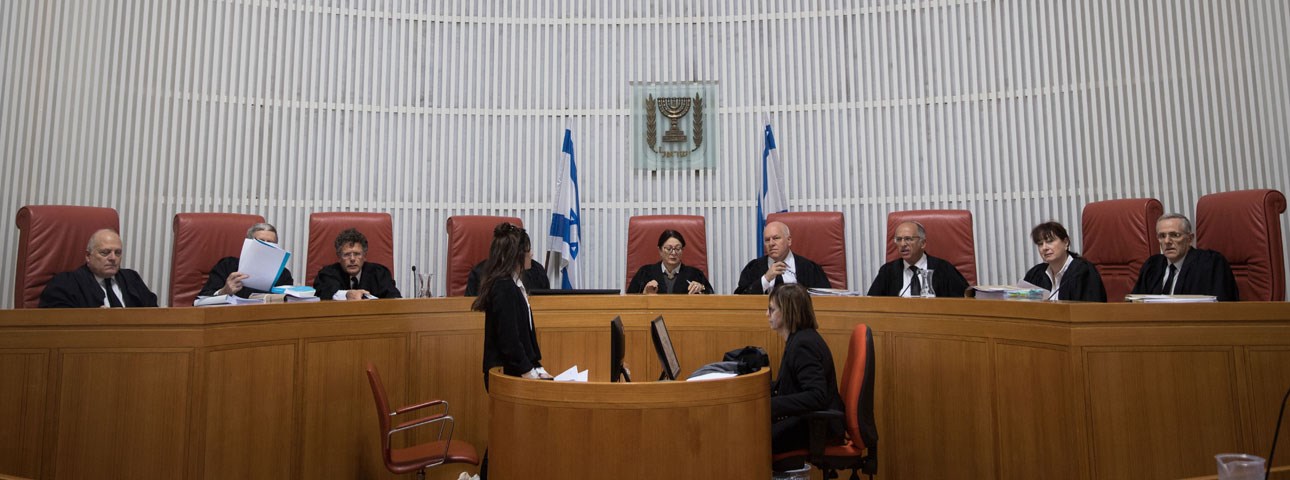
A Needle on the Israeli Compass
Written By: Prof. Yedidia Z. Stern
The conservatives who think the court is moved by a malicious intent to stamp out politics are mistaken. Our High Court of Justice is squeaky clean, and of the highest possible caliber
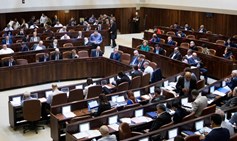
What if Netanyahu Fails to Form a Coalition? Explainer
Written By: Prof. Ofer Kenig
What if Netanyahu fails to form a coalition? Will Israel find itself again holding elections? Although unlikely – Dr. Ofer Kenig explains the possibilities

Israeli Voice Index: 82% of Israelis Are Proud of Country’s Achievements
Written By: Prof. Tamar Hermann, Dr. Or Anabi
On the eve of Israel’s 71st Independence Day, 82% of the Israeli public thinks that the national balance of achievements shows more successes than failures and 62% think legal proceedings against Prime Minister Netanyahu should not be stopped, notwithstanding his success in the elections

The Personalization of Politics in Israel
Written By: Prof. Gideon Rahat
In Israel, people vote for a party rather than a candidate. But over the years, there has been a shift towards the personalization of politics. Why have our elections become a competition among single personalities rather than a confrontation among different parties and ideas? Prof. Gideon Rahat offers his take
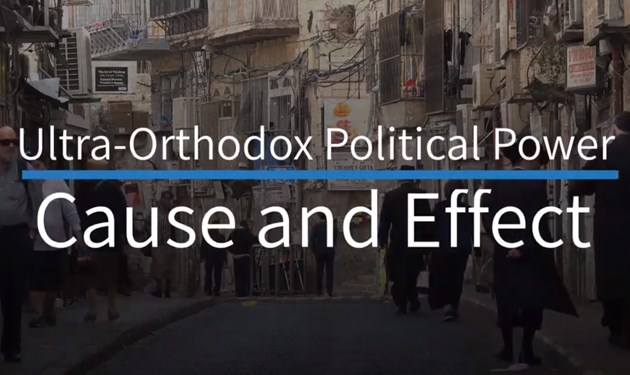
Are Ultra-Orthodox Parties Risking Losing the Allegiance of their Voters?
Written By: Dr. Gilad Malach
For many years the ultra-Orthodox were perceived as “captive voters” who would always comply with their rabbis’ instructions to cast their ballot for ultra-Orthodox parties. In today’s new reality such directives are no longer enough
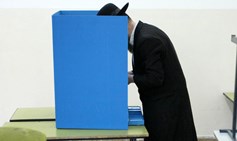
What Do Haredi Voters Really Want?
Written By: Dr. Gilad Malach
Gilad Malach of the Israel Democracy Institute gives the latest electoral trends among Israel’s insular ultra-orthodox Jewish community. Why is a small community so divided, and why are growing numbers of ultra-Orthodox voters leaving the Haredi parties altogether?

Exclusive Elections Survey – Final Stretch
Written By: Prof. Tamar Hermann, Dr. Or Anabi
66.5% of the Jewish public thinks that Israel is too lenient in dealing with the clashes on the Gaza border. Only 38.5 of the Israeli public believe Prime Minister Netanyahu’s statement that he “didn’t get a shekel from the submarine deal”, 52% of the Israeli public trusts election surveys and 27.5% does not trust the integrity of the Knesset elections

Take Great Care When You Limit Freedom of Expression
Written By: Prof. Yedidia Z. Stern
Instead of training rhetorical cannons on the court, which is doing its job in a chaotic situation, the legislature should delete Section 7A from the Basic Law. Let everyone run for the Knesset, and let those who violate criminal laws bear the consequences of their actions
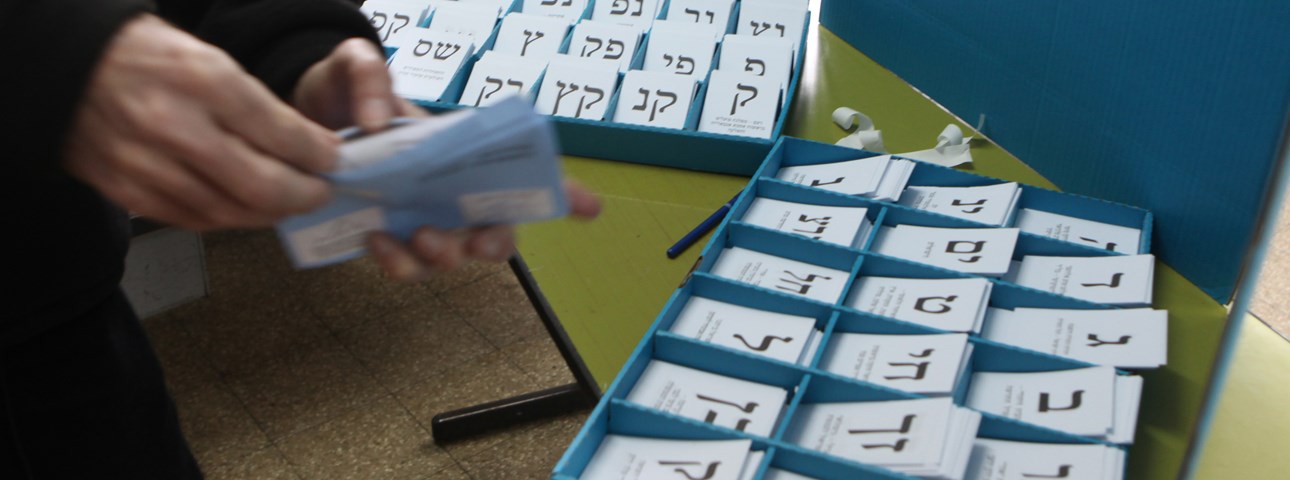
Will Your Vote Count?
Written By: Dr. William Cubbison
To what degree does the Israeli public have faith in the integrity of the elections, to what extent does it believe that the April 9th elections will accurately reflect its views and how does Israel measure against other democracies?

Alliance of Interests
Written By: Dr. Assaf Shapira
The alliances and fragmentation has far-reaching consequences for the work of the Knesset and the government
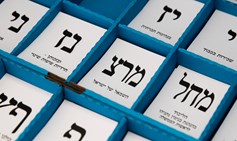
Exclusive Pre-Elections Survey
Written By: Prof. Tamar Hermann, Dr. Or Anabi
Exclusive Pre-Elections survey by the Guttman Center at the Israel Democracy Institute finds that half of Israelis find it harder than in the past to decide whom to vote for; 25% base their choice on the party’s positions on socioeconomic issues and 18% on who heads the party; 27% do not trust the integrity of the Knesset elections

5 Rules on How to Act Smart and Protect Yourself in the Digital Age
Written By: Dr. Tehilla Shwartz Altshuler
It is difficult to identify them - they are hidden, disguised, sophisticated and resonate to us what our immediate surroundings think. During the election campaign they are at their peak - bots, fake accounts, unnamed identifiers - all trying to influence public opinion. We bring to you 5 tips for managing smart online presence
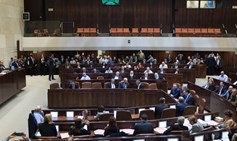
Time to Vote for a Bloc!
Written By: Prof. Yedidia Z. Stern
“The great task before all — right and left, religious and secular, Jew and Arab — is to break down the veto power that the extremists among us wield over the center on various fronts”
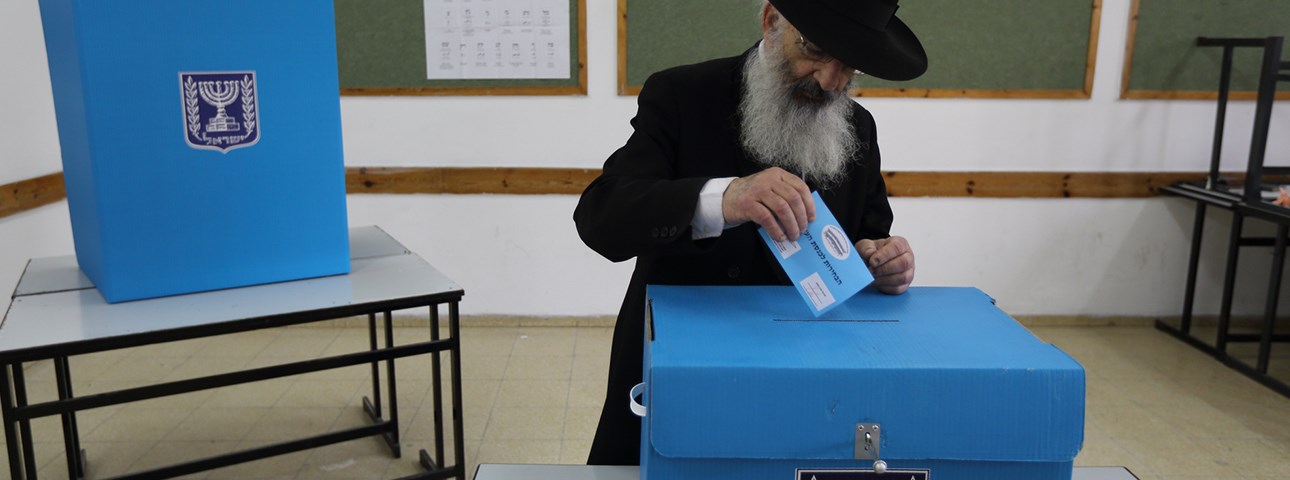
Ultra-Orthodox Political Parties in Israel—Past, Present, Future
Written By: Dr. Gilad Malach
What is the secret behind the power of the ultra-Orthodox political parties in Israel and how has it changed over the years? The article presents an overview of the development of the ultra-Orthodox political parties in Israel from the establishment of the State as well as insights as to future developments.
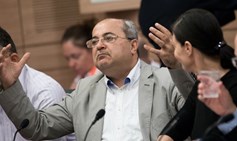
Arab Politics in the 2019 Election Campaign
Written By: Dr. Arik Rudnitzky
A review of political and ideological streams in Arab society in Israel - towards 2019 elections.

Special Elections Survey
Written By: Prof. Tamar Hermann, Dr. Or Anabi
The Jewish public is divided over the question whether the prime minister should resign if indicted by the Attorney General, pending a hearing; 52% of the Jewish public believes that Israelis living abroad should also have the right to vote
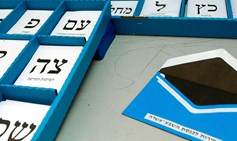
Why Are There so Many Political Parties, and Why Does This Fragmentation Obstruct Governance?
Written By: Prof. Gideon Rahat
“The current system grants small parties disproportionate power, leads to excessive preoccupation with coalition management, does not provide strong incentives for creating an effective opposition, and leads to the allocation of over-sized budgets to sectoral interests. We need to create a system of incentives which will solidify the political system into two main blocs.” says Prof. Gideon Rahat
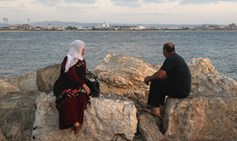
The Five-Year Plan for Arab Israelis: the Acid Test of the Upcoming Elections
Written By: Dr. Nasreen Haddad Haj-Yahya
The five-year plan for the development of the Arab community was a giant step forward towards the socioeconomic advancement of Israel’s Arabs, nevertheless the current election campaign is going to be the acid test: Is the Israeli government serious about integrating the country’s Arab citizens into the broader society, or merely in promoting the Arab economy in light of its importance for the country’s overall prosperity?
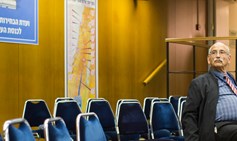
Has The Era of the Primaries Come to an End?
Written By: Prof. Ofer Kenig
Democracy is at risk when the responsiveness between the public and its elected representatives is severed. Without accountability, political extremism and populism will become more prevalent.
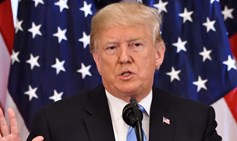
Elections, Security and the Next Government
Written By: Prof. Tamar Hermann, Prof. Ephraim Yaar
The majority of Israelis think that Trump’s decision to withdraw from Syria harms Israel’s security and want a right or center-right government. Read more in the latest Peace Index.

Cyber Security, Foreign Meddling and Israeli Elections
Written By: Dr. Tehilla Shwartz Altshuler
Dr. Tehilla Shwartz Altshuler sat down with The Israel Project to discuss Israeli Security Agency’s warning against foreign countries’ intervention in Israel’s upcoming elections
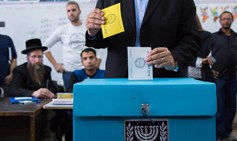
Israeli Politics Fractured: The System Needs Fixing
Written By: Prof. Gideon Rahat
It is commonly accepted that in order to defeat Netanyahu, the political parties in the center and on the Left must unite and present a single and clear alternative. However, under the current system, this claim is simply not true.
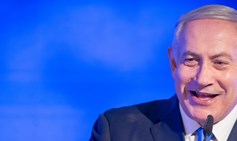
Does Benjamin Netanyahu Face Real Competition?
Written By: Prof. Tamar Hermann, Prof. Efraim Yaar
The monthly Peace Index reveals that: 46% of Jewish Israelis name Benjamin Netanyahu as their preferred candidate for the next prime minister.
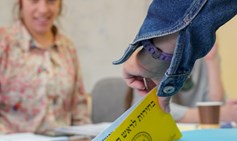
Local Government and Local Elections: Time to Move Away from Centralized Thinking
Written By: Prof. Gideon Rahat
Israel’s system of local elections has been in place since the 1970s - but is it optimal? Prof. Gideon Rahat proposes reform to enhance the compatibility of the system to the characteristics and needs of different localities.
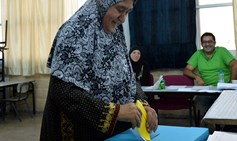
Why Local Elections Matter
Written By: Yohanan Plesner
"While Israeli national politics get most of the coverage, it is the local level that in many cases has the greatest impact on Israeli lives." Read Yohanan Plesner's op-ed on the upcoming municipal elections and why electoral reform is required, both on the local and national level.
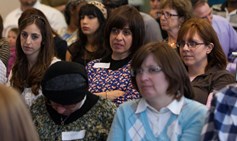
Integrating Women into Politics: Another Solution
Written By: Prof. Ofer Kenig, Dr. Chen Friedberg
The absolute exclusion of women from ultra-Orthodox parties keeps their specific interests from being addressed effectively in the public sphere.
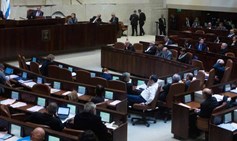
The Israel Democracy Institute Ahead of Deliberations on the V-15 Bill
Ahead of Wednesday’s (January 4) deliberations on the changes in the V-15 Bill, scholars from the Israel Democracy Institute (IDI) sent a letter to members of a joint committee of the Knesset’s House and Law Committees calling on them to amend the bill significantly.

Are Open Primaries the Answer?
Written By: Prof. Ofer Kenig
The volatile Israeli party system, together with several recent political developments, lately brought the idea of holding open leadership primaries to Israel. However, when considering the adoption of open primaries, one must also take into account their potential challenges and dangers.

The Israel Democracy Institute to Knesset Ministers: "Support Bill to Shorten Time Allotted For Forming A Government"
Ahead of today's meeting of the Ministerial Committee on Legislation, the Israel Democracy Institute (IDI) called for supporting a bill that will shorten the length of time allotted to form a governmnet after an election.

Israeli Democracy Institute to Ministers: Support the Amendment to the Propaganda for Elections Law
Policy statement: "The current law from 1959 does not jibe in the current media and political reality of the 21st century and causes discrimination between different forms of media and political forces."

The Glass is Half Full

The Electoral Threshold, Wasted Votes, and Proportionality
Written By: Prof. Ofer Kenig
In the upcoming elections, the electoral threshold will be 3.25%, a big leap from the last elections. Will this higher hurdle deter voters from supporting small parties? Will it reduce the share of wasted votes? What impact will it have on the proportional nature of the electoral system?

23 Knesset Seats is Not a Victory
Written By: Yehoshua Oz
In an op-ed in the Jerusalem Post, Yehoshua Oz, IDI's Director of International Communications, argues that pundits eager to crown a victor in the 2015 elections have lost sight of the fact that winning one-fifth of the Knesset seats is no victory.
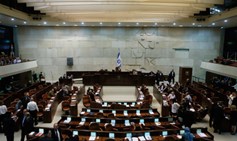
How to Prevent the Recurrence of Early Knesset Elections
Written By: Yohanan Plesner
IDI President Yohanan Plesner recommends a change of approach and some practical steps for changing the reality in which the Israeli public repeatedly goes to the polls to elect a new Knesset before the previous Knesset has finished its term.
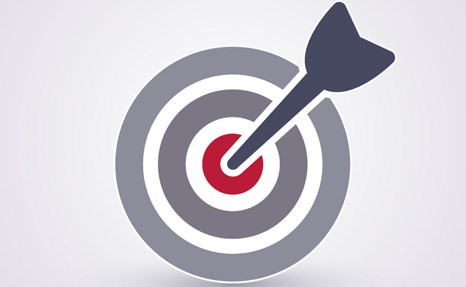
Democracy: The Key Election Issue
Written By: Prof. Mordechai Kremnitzer
In an op-ed in Maariv, IDI Vice President Prof. Mordechai Kremnitzer calls for an election campaign that focuses not only on foreign policy and Israel's social gap, but on the nature of Israeli identity and the value of Israeli democracy itself.

How Often Elections Are Called in Israel and Around the World
On average, since 1990 elections in Israel have been called every 2.8 years.

The Length of the 19th Knesset's Term vs. Previous Knessets
This Knesset stands to be the second shortest in Israeli history if elections are held in March or April 2015.
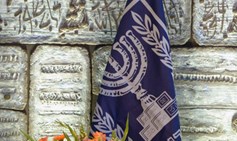
The Israeli Presidency: Unnecessary Institution or Vital Symbol?
Written By: Dr. Dana Blander
As the 2014 presidential election draws near, once again there have been calls to do away with the institution of the presidency. Is the President of Israel an unnecessary position or a vital symbol? IDI researcher Dr. Dana Blander analyzes the two sides of this question.

At the Starting Line: The Israeli Presidential Race Begins
Written By: Prof. Ofer Kenig
Is Prof. Dan Shechtman, who formally announced his candidacy for the 2014 presidential race in Israel, any different than traditional candidates for the position? IDI researcher Dr. Ofer Kenig surveys the characteristics of Israel's past presidents and presidential candidates.

Remembering Ariel Sharon (1928–2014)
Written By: Prof. Ofer Kenig
Dr. Ofer Kenig presents some of the milestones in the career of Ariel Sharon, the 11th Prime Minister of the State of Israel.
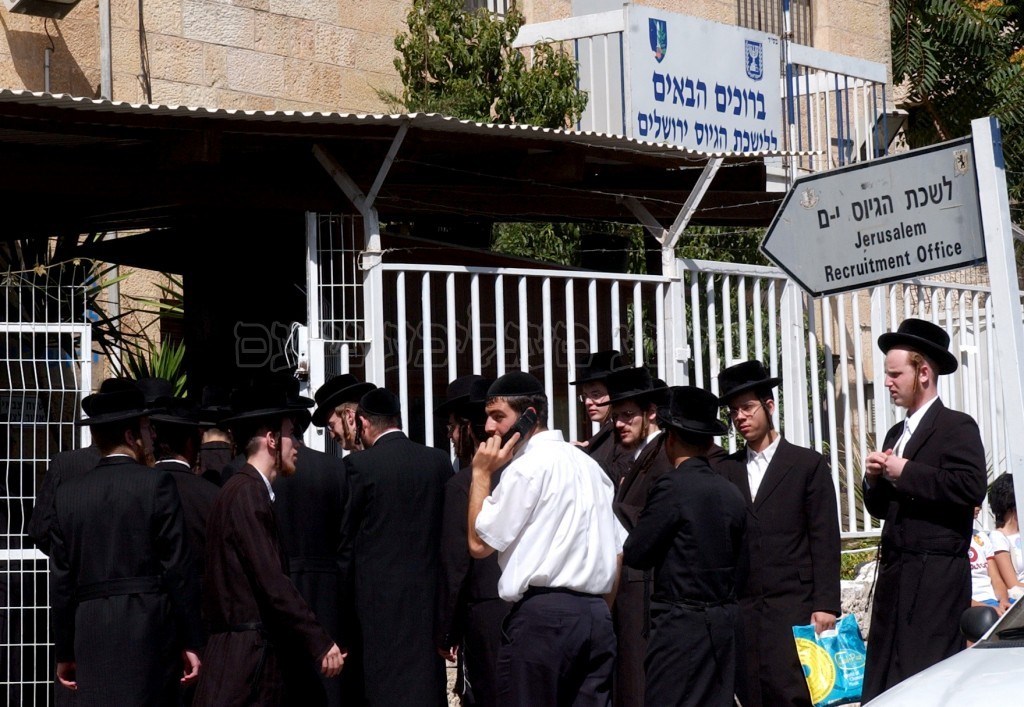
Sir Isaac Newton and the New Haredim
Written By: Prof. Yedidia Z. Stern
Prof. Yedidia Stern shares thoughts on the connection between failure of the ultra-Orthodox "Tov" party in the local elections, the Haredi draft bill being debated by the Shaked Committee, and Newton's laws of motion.

The Israeli Municipal Elections 2013: Some Preliminary Findings
Written By: Nir Atmor, Dr. Dana Blander, Dr. Assaf Shapira
Dr. Nir Atmor, Dr. Dana Blander, and Assaf Shapira share some preliminary findings on voter turnout and women's representation in the Israeli municipal elections of 2013.

On the Decline in Voter Participation in Municipal Elections in Israel
Written By: Dr. Assaf Shapira
Why is voter participation in local elections in Israel so low? Assaf Shapira explains the reasons behind this phenomenon, discusses its implications, and offers possible remedies.
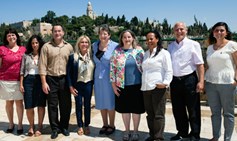
Women and Israeli Local Politics – A Natural Fit
Written By: Moran Nagid
More women than ever are running for Israeli municipal government in the local elections of 2013, but is it enough? Moran Nagid surveys the appeal of local politics for women and suggests a means of improving the situation.

The 32nd Israeli Government: The 2009 Coalition
Written By: Prof. Ofer Kenig
IDI Researcher Dr. Ofer Kenig outlines the Israeli government elected in 2009, and explains why this particular five-party coalition may not succeed.

Women in the 18th Knesset
Written By: Prof. Ofer Kenig
IDI Researcher Dr. Ofer Kenig analyzes the results of the 2009 Israeli general election elections as they pertain to women's representation in the Knesset.

And the Winner is...
According to Israel's Basic Law, following general elections the president appoints a Knesset Member to form the new government. In the wake of the 2009 Israeli general election, Benjamin Netanyahu was chosen – even though he did not lead the largest party. Dr. Dana Blander proposes the establishment of a clear set of rules which would automatically give the leader of the largest party the power to form the incoming government, obviating ambiguity surrounding the selection process of the Prime Minister.

Online Campaigns in the 2009 Election
Written By: Nir Atmor
Mr. Nir Atmor of IDI's Political Reform program writes about the role of online campaigns in the 2009 Israeli general elections. The weeks preceding the elections revealed significant attempts by political parties to utilize the Internet as a primary campaigning instrument. Atmor applauds the politicians' "wisdom in adapting to a new technological reality", with the Internet at its core.

Disqualifying the Arab Lists
Written By: Prof. Mordechai Kremnitzer
The Arab parties of Balad and Raam-Taal were banned last week from participating in the upcoming elections for the Knesset in February. This ruling by the Central Elections Committee is a clear indication of the dire state of Israeli politics and the ongoing deterioration of Israel's democratic character.

Frequent Elections and Political Instability
Written By: Prof. Ofer Kenig
Israeli law calls for general elections every four years. However, recent Israeli governments have not survived a full term in office. In light of the 2009 elections, IDI Researcher Dr. Ofer Kenig, Knowledge Manager for the Israel Democracy Institute's website, explores the implications of frequent elections on the stability of Israeli democracy government.

National and Local Politics
Written By: Naomi Himeyn-Raisch
An examination of the development of Israeli local politics, which discusses voting patterns, citizen participation in the decision making process and political activism, as each relates to local politics.

How Should the President of Israel be Chosen?
Written By: Prof. Ofer Kenig
Is the institution of the presidency necessary? Who elects the president? Is the election an open vote or secret ballot? Dr. Ofer Kenig explores the situation in Israel and other parliamentary democracies.
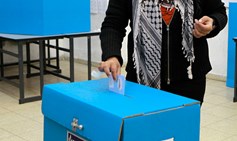
The Voice that Doesn’t Count
Written By: Prof. Yuval Shany
One of the main explanations for the dramatic decline in voter turnout in the Arab Israeli sector in the last elections (49%, versus 63% in the 2015 elections) is the sense that the voice of Israeli Arabs — is a voice that doesn’t count.
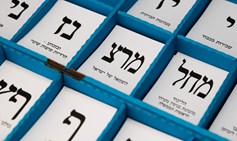
How Could the Rerun Elections have been Avoided?
Written By: Dr. Assaf Shapira
The rerun elections expose a weakness in our system of government and highlight the need to modify the current system for forming a government
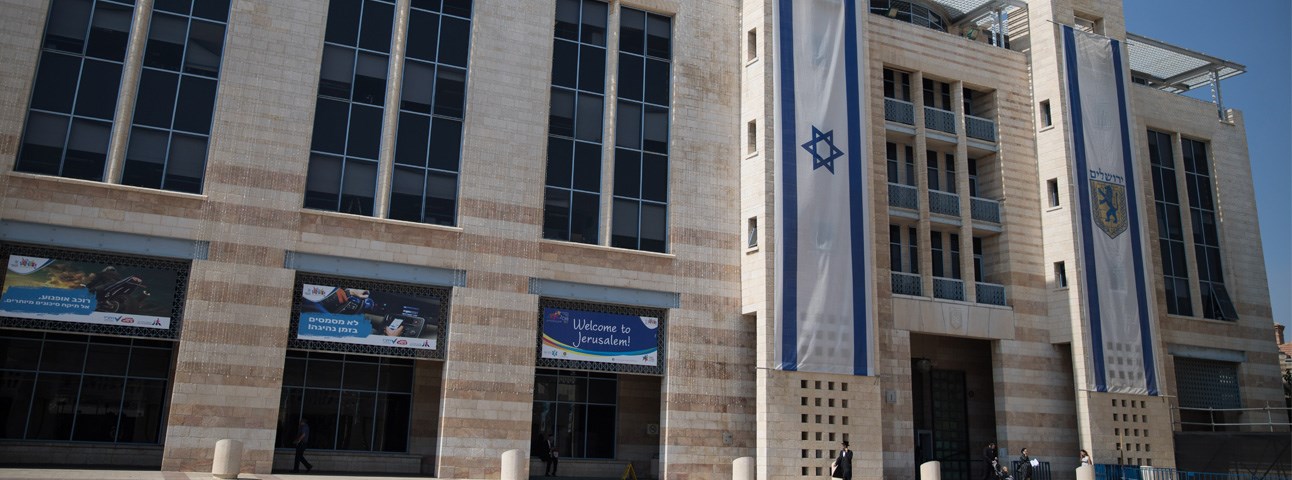
Is There a Connection Between Corruption and Term Limits in Local Government?
Written By: Prof. Ofer Kenig, Dr. Shahaf Zamir
Recent years have seen the emergence of dozens of corruption scandals involving local government in Israel. Subsequently there have been calls to set mayoral term limits to prevent graft and corruption. Dr. Ofer Kenig and Shahaf Zamir's dispel the idea that there is a connection between the length of a mayors term and levels of corruption.

Ultra-Orthodox Parties in Municipalities in Israel
Written By: Dr. Gilad Malach
Tomorrow's elections will determine the local government in 251 cities, towns and municipalities. Of all the political parties represented at a national level in Israel, the ultra-Orthodox parties are the most successful in local government. What are the reasons behind this interesting trend? Read Dr. Gilad Malach's fascinating findings.

Out of Sight: How Do Israeli Parties Perform on Social Networks?
Yesh Atid, Zionist Camp and Meretz have the strongest online presence, while the Joint List and Yisrael Beiteinu lag behind.

If Elections Were Held Tomorrow, Israelis Would Select a Right-of-Center Government
Latest Peace Index: Trump’s White House invitation to Abbas not viewed as negative toward Israel; Israelis believe chances of Israeli-Syrian war low

IDI President Responds to Advancement of V-15 Bill
Today, the V-15 bill advanced to the Knesset, with a vote expected as early as later this week.

